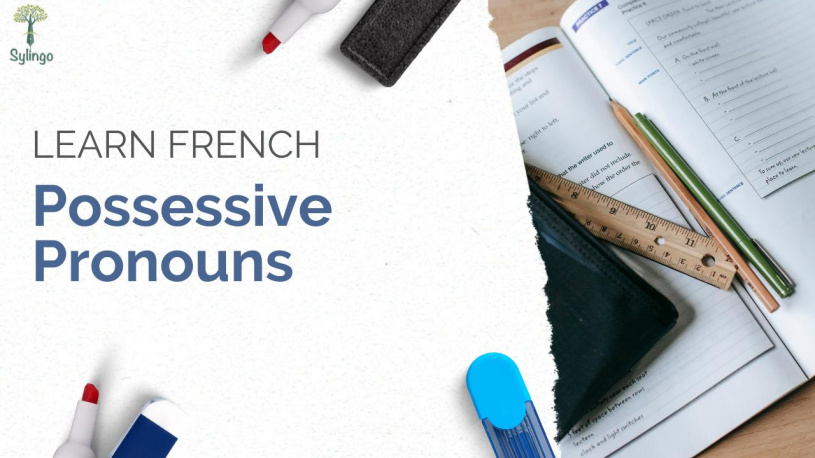In French, possessive pronouns are used to indicate ownership or possession. They agree in gender and number with the noun they modify. Understanding how to use possessive pronouns correctly is essential for effective communication in French.
1. Forms of Possessive Pronouns:
Masculine Singular:
| Mon | my |
| Ton | your - informal singular |
| Son | his/her/its |
Feminine Singular:
| Ma | my |
| Ta | your - informal singular |
| Sa | his/her/its |
Masculine and Feminine Plural:
| Mes | my |
| Tes | your - informal plural |
| Ses | his/her/its |
2. Agreement with Gender and Number:
Gender Agreement:
The possessive pronoun must agree in gender with the noun it refers to.
For example:
- Mon livre (masculine singular) - My book
- Ma voiture (feminine singular) - My car
Number Agreement:
The possessive pronoun must also agree in number with the noun it refers to.
For example:
- Mes livres (masculine and feminine plural) - My books
- Tes voitures (masculine and feminine plural) - Your cars
3. Placement in a Sentence:
Before Nouns: Possessive pronouns usually come before the noun they modify.
For example:
- Mon ami (My friend)
- Sa maison (His/her house)
After "Être" (to be): Possessive pronouns can also come after the verb "être" to show possession.
For example:
- C'est mon livre. (It's my book.)
- Elle est sa sœur. (She is his/her sister.)
4. Use in Context:
Possessive pronouns are used to indicate ownership or possession in various contexts, such as:
-
Family relationships: Ma mère (My mother), Ton père (Your father)
-
Possessions: Mes clés (My keys), Son ordinateur (His/her computer)
-
Descriptions: Ma nouvelle voiture (My new car), Son vieux chapeau (His/her old hat)
Exercise:
Fill in the blanks with the appropriate possessive pronouns in French.
-
Voici ___________ livre. (my)
-
Où sont ___________ clés ? (your - informal singular)
-
C'est ___________ chat. (his/her/its)
-
Regardez ___________ photos. (our)
-
Tu aimes ___________ nouvelles chaussures ? (your - informal plural)
-
Elle adore ___________ chien. (her)
-
Ce sont ___________ frères. (their)
-
J'ai trouvé ___________ portable. (your - formal singular)
Answers:
-
Voici mon livre. Here is my book.
-
Où sont tes clés ? Where are your keys? (informal singular)
-
C'est son chat. This is its cat.
-
Regardez nos photos. Look at our photos.
-
Est-ce que tu aimes tes nouvelles chaussures? Do you like your (informal plural) new shoes?
-
Elle adore son chien. She loves her dog.
-
Ce sont leurs frères. These are their brothers.
-
J'ai trouvé votre téléphone. I found your (formal singular) phone.
Possessive pronouns play a crucial role in expressing ownership or possession in French. By understanding their forms, agreement rules, and placement in a sentence, you can effectively communicate ownership relationships in French conversations and writing. Practice using possessive pronouns in different contexts to improve your proficiency in French language skills.





